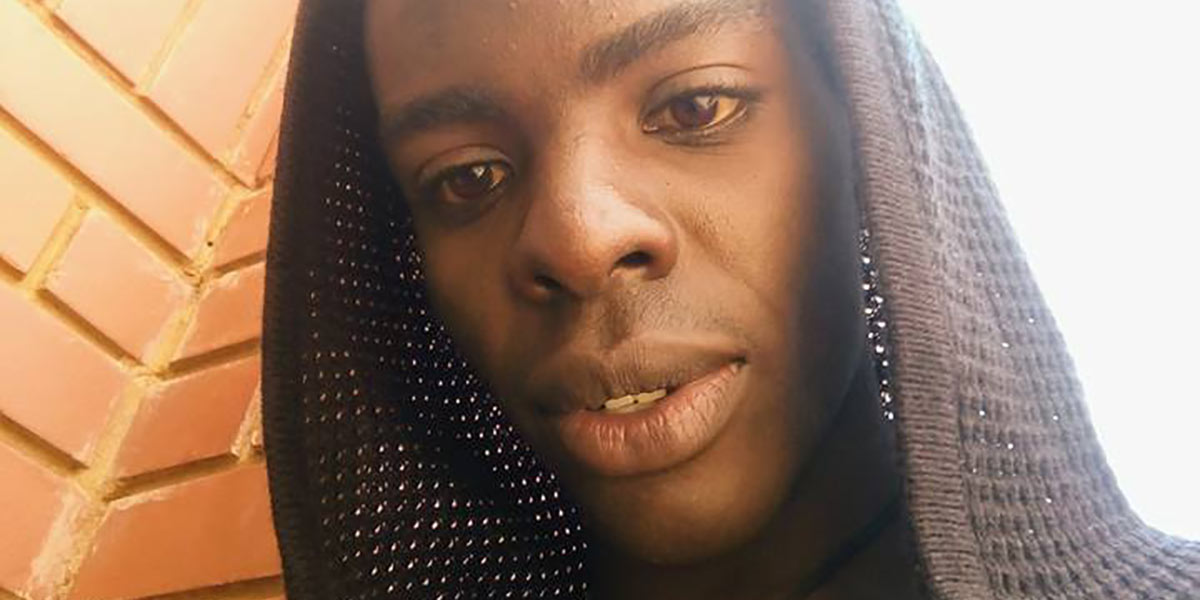Free at last! Kenyan LGBTIQ activist rejected by SA is taken in by Canada

George Barasa
George Barasa, the Kenyan LGBTIQ activist who was humiliatingly denied asylum in South Africa for not being gay enough, has instead been given a safe haven by Canada.
Following death threats in his homeland, George came to South Africa in 2017 and applied for asylum based on his being persecuted because of his sexual orientation. Homosexuality is illegal in Kenya under the country’s colonial-era penal code which penalises same-sex sexuality with five to 14 years in prison.
His application was denied by South Africa in an incompetent, ill-informed and nonsensical written decision (read it here). It included the assertion that he’d “fraudulently” claimed to be gay, despite him being an international recognised LGBTIQ activist.
He appealed, and 11,000 people signed a petition calling on the South African government to give George refuge and to treat LGBTIQ asylum seekers with dignity, respect and humanity.
It was to no avail. After two years of humiliation, shocking conditions at Home Affairs offices, homophobic and xenophobic abuse from officials, being robbed and his papers allegedly being lost by the department, on 28 August, it upheld the decision and formally denied his appeal.
Expecting this outcome, George had earlier applied for asylum in Canada. In August, he was accepted as a person belonging to a group facing persecution in both his country of origin and that of asylum.
Speaking to MambaOnline from Canada, George said he finally felt “free” but was “still traumatised” by his experience in South Africa.
He revealed that after his appeal was rejected by Home Affairs, the immigration authorities attempted to send him back to Kenya and initially refused to let him fly to Canada.
“I was airlifted to Canada shortly after the xenophobic attacks started,” he said. “It was very hard to access Home Affairs in Marabastad (Pretoria) as there was chaos and teargas in the air when I tried to go there to get my exit permit but I had to navigate my way around if I was to leave with a clear report.”
Looking back at his time in South Africa, George commented that “the equality in South Africa that protects LGBTI from discrimination does not cover foreigners.”
We asked how he felt about being rejected by an African nation, supposedly governed under a progressive and LGBTIQ affirming constitution and, instead, being given safety by a North American country.
“I think South Africa’s actions of deliberately rejecting fellow Africans is unAfrican to me, both morally and culturally,” replied George. “I think it is an embarrassment when a non-African country has to take in an African who has been rejected by an African country. It says a lot about how divided we are are as Africans.”
He added: “I tried so much to remain in my motherland but I guess it was time for me to leave completely.”
George, informally known as Joji Baro, was one of the first people to come out on national television in Kenya as both gay and HIV positive. He made a name for himself as a leading human rights defender who campaigned for LGBTIQ equality in Africa, primarily through art.
In 2016, he and his band Art Attack sparked international attention when they released Kenya’s ‘first gay music video’, called Same Love; a reworking of the Macklemore and Ryan Lewis’ track. The clip was banned and George was threatened with arrest.
Now, he has found some peace. “Canadians are nice people and they treat me well,” said George. “For the first time, I can walk in public without covering my shoulder-length hair.”
Leave a Reply